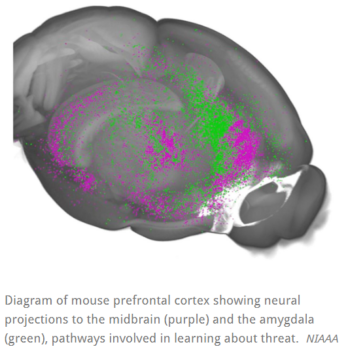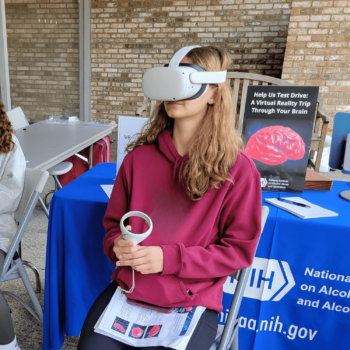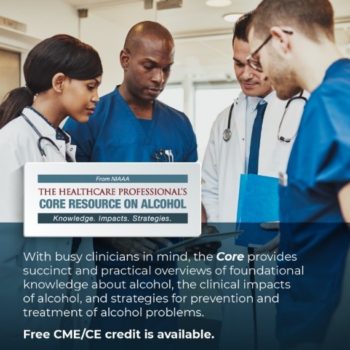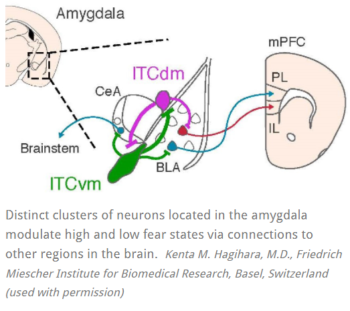Researchers identify brain hub with key role in learned response to direct and indirect threats
NIH-supported study in mice could inform treatments of trauma- and stress-related psychiatric conditions. Scientists have identified an area within the brain’s frontal cortex that may coordinate an animal’s response to potentially traumatic situations. Understanding where and how neural circuits involving the frontal cortex regulate such functions, and how such circuits could malfunction, may provide insight … Read more





